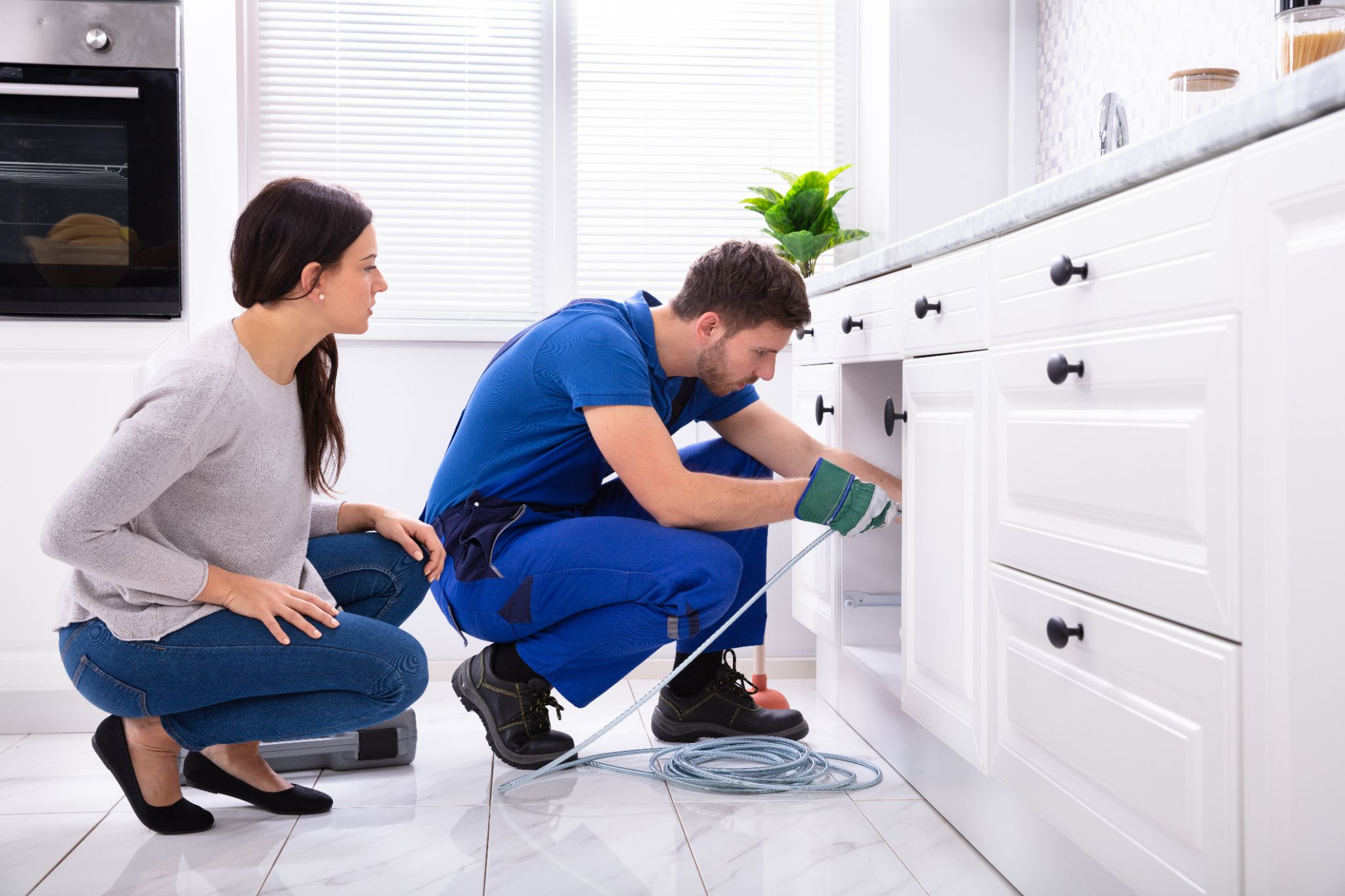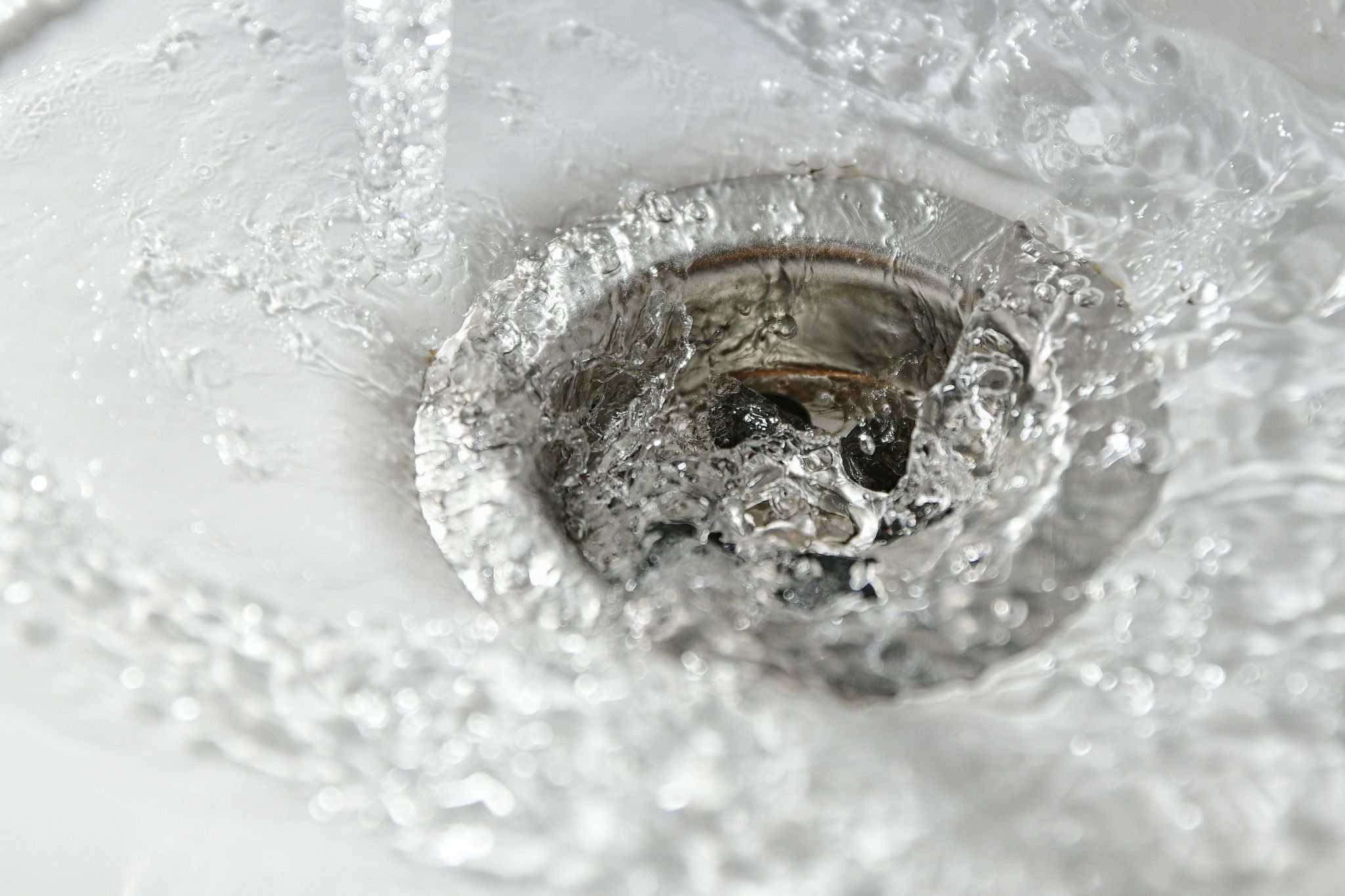How Often Should You Get Your Drains Cleaned Professionally?

Do you have drains that seem to drain slower and slower each time you use them? Slowly draining water is a sign a clog is forming somewhere in the drain lines. The clog could form in the “U” trap under the sink, shower, or tub, or it could develop much farther down the line or even in the sewer lines outside your home.
If you ignore it, eventually you will have a clogged drain line. Plunging the drain with a plunger sometimes helps. However, the interior of your plumbing system drain lines could have soap, hair, shampoo, grease, and other icky, gunky stuff that forms and sticks to the pipes.
Eventually, as the buildup accumulates, clogs can reoccur and start to become more frequent. At this point, to fully clean out the drain pipes and eliminate slowly draining and clogged drain problems, a professional drain cleaning service is required.
What is professional drain cleaning?
Professional drain cleaning is a type of service performed by a licensed and experienced plumber. Plumbing professionals have access to a wide range of various plumbing tools and equipment that can help clean the interior of drain lines.
For example, they may use a video camera to inspect the drain lines to determine what type of icky stuff is stuck to the inside of the pipe and find the source of clogs.
When removing clogs and cleaning the drain pipes, your plumber could use hydro-jetting, which uses pressurized water to remove gunk from the inside of the pipes. They could also use an automated drain snake that turns and rotates to remove hair and excessive build-up from inside the pipes. Sometimes, your plumber may use a combination of these and other drain-cleaning methods.
What are some common types of drain problems?
There are several common types of drain problems that can occur around the home as follows:
- Kitchen Sinks – We put all sorts of stuff down the drain, from food particles to grease, even though it is not good for the plumbing system. These things can cause excess buildup that leads to drainage problems.
- Showers/Bathtubs – Hair, shower gel, shampoo, and conditioner can make it so you are standing in water whenever you shower or waiting hours for the tub to drain fully.
- Bathroom Sinks – Shaving gel, toothpaste, and mouthwash can all create gummy deposits inside drain lines leading to slow draining and clogged drains.
- Floor Drains – Floor drains are found in basements, garages, and laundry rooms. Dust, dirt, and other debris can easily get into the drain lines, even when filter covers are in place, causing drain problems.
Can’t I clean my drains myself using chemical drain cleaners?
Store-bought chemical drain cleaners are a huge business for manufacturers that make these products. They are often labeled as “professional-strength” drain cleaners. However, that just reflects the harshness of the chemicals used in these products.
One concern with these products is that they might say they work with all types of clogs, but they do not. The chemicals are designed to remove only certain clogs, not every single type.
For instance, one product might be good at dissolving hair. So, if you have a hair clog, then it will work. On the other hand, if you have a grease clog, then this product would be ineffective.
Another concern is the harshness of the chemicals on the plumbing system and sewer drain lines. Some of these chemicals could eat through PVC plastic, damage connections, or create other plumbing problems, including water leaks and water damage.
Not to mention, there are environmental concerns about the chemicals used in these products. These chemicals eventually end up at wastewater treatment plants and have to be removed. In some cases, all traces of the chemicals may not be possible, so they end up in water supplies where animals, plants, and humans could be exposed to them.
The best solution is to use some good ol’ fashioned elbow grease and a plunger to attempt to remove a clog. When that doesn’t work, then you should call your plumber and schedule a professional drain cleaning service.
Why is professional drain cleaning important?

Professional drain cleaning helps ensure your drains are clean and working properly. Regular drain cleaning also helps prevent clogs from forming. Since the interior of the pipes is clean, it takes much longer for icky stuff to start accumulating on the inside of the pipes and creating a clog.
Furthermore, regular drain cleaning saves you money in the long run since you will not have to worry about emergency plumbing calls for clogged, backed up, and overflowing drains. Your home’s plumbing system lines will benefit, too, and last longer before they wear out and need replacing.
What can happen if drains are not cleaned regularly?
As we already mentioned, clogged drains can become more common when your drain lines are not cleaned regularly. You will have to spend more time plunging drains and removing clogs. Eventually, the clogged drains will become so bad you will have to call your plumber for help.
Other side effects of dirty drain lines are foul odors and bad smells. For example, imagine all the food waste that goes down your kitchen sink drain for a moment. Even if you have a garbage disposal, food particles can stick to the inside of the drain lines.
Sometimes, larger pieces get trapped in the “U” trap. As we know, food decays and rots, causing unpleasant odors. Now, imagine what the inside of your drain lines must look like. Think about all the icky stuff that has remained inside over the years since your home was built.
All those liquid soaps, hair gels, shaving creams, hair, and toothpaste can all stick to inside the drain pipes in the bathroom. These things can also start to smell and no longer have the pleasant scent they did when we first used them.
Additionally, mold and mildew can become a problem when drain lines are not cleaned regularly. There are plenty of damp and moist conditions inside the drain pipes, along with whatever icky gross stuff gets trapped inside the pipes, that all help promote the formation and growth of mold and mildew.
If you have noticed black mold growing out of the drain lines or on the sink stoppers, this is a great indication you are well overdue for a professional drain cleaning service.
How do I know how often I should have my drains cleaned professionally?

For the most part, it will depend on how much you use the drains in your home and what you put down them. Some people may require drain cleanings every year when they use their drains often.
On the other hand, if you only use a few select drains in the home, then those might need annual drain cleaning maintenance, while the others may only need to be cleaned every few years.
Another way to know when it is time to schedule a drain-cleaning service with your plumber is to watch for these common signs:
- Water Draining Slowly
- Bad Odors and Foul Smells
- Mold and Mildew Problems
- Recurring Clogged Drains
Alternatively, if you want to avoid waiting for these signs to start to appear, you could just schedule an annual drain-cleaning service with your plumber. Annual cleanings will keep your drain pipes clean and working correctly. Plus, clogs are less likely to form since the pipes are being kept clean.
If you have never had your drain lines cleaned and are experiencing one or more of the common signs mentioned above, now is the perfect time to have your drain lines cleaned.
To schedule a professional drain cleaning service in New Braunfels, Temple, San Antonio, or the Austin Metro area, please feel free to call Christianson Air Conditioning & Plumbing at 512-246-5400 today!



Sorry, comments for this entry are closed at this time.